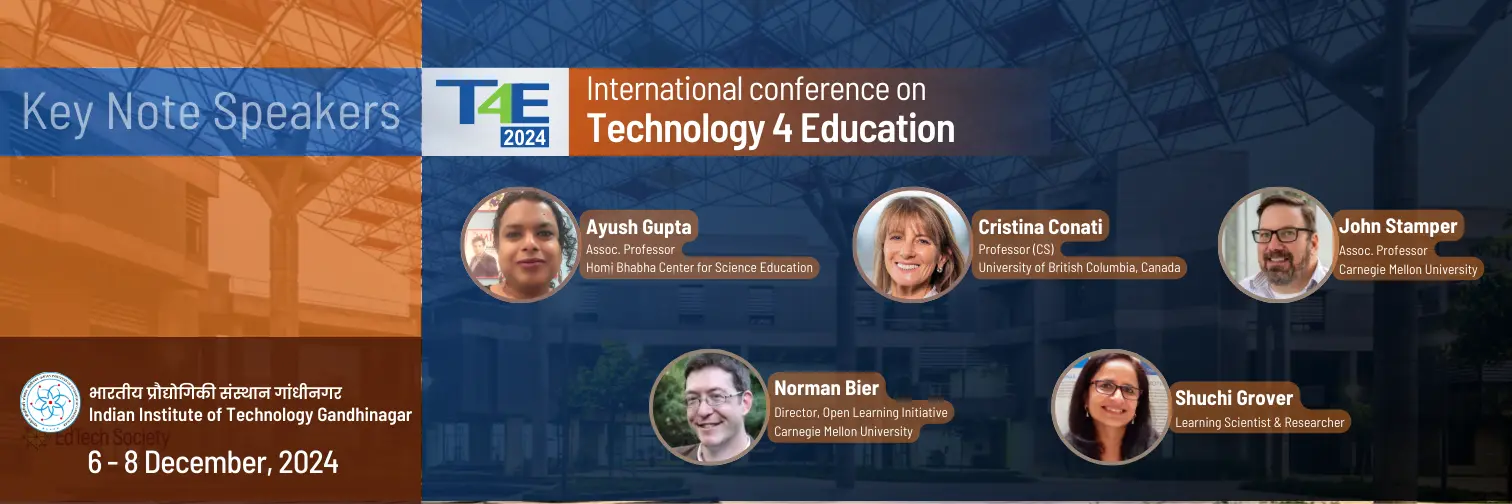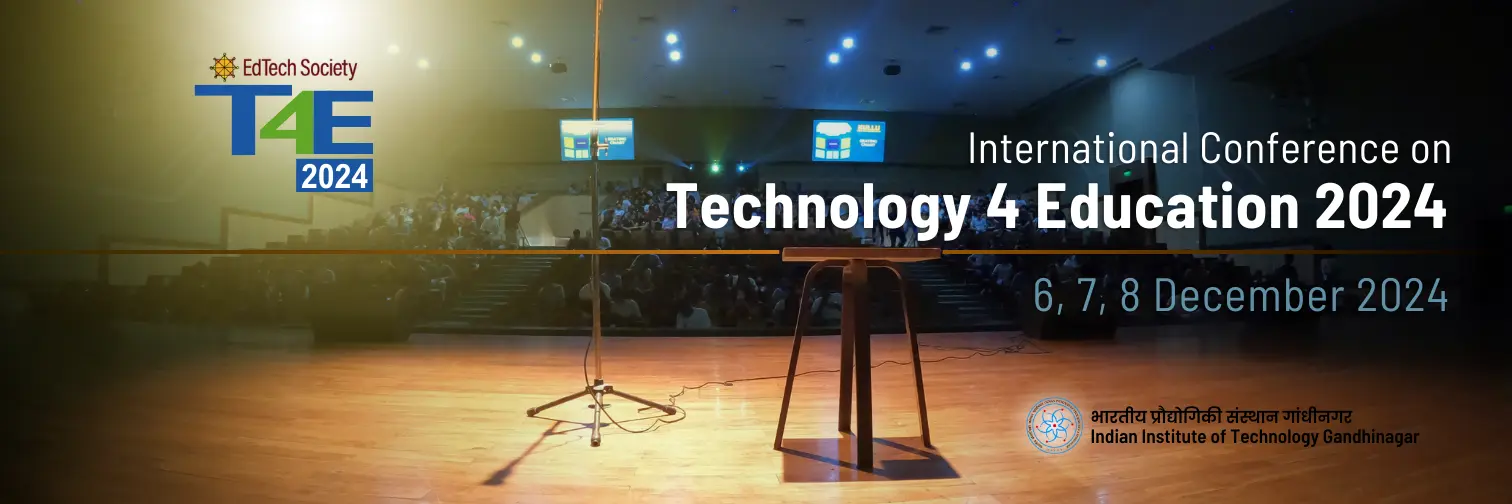- Original Research, either as full papers or as short papers
- Experience Report, either as full papers or as short papers
Accepted T4E 2024 papers for the main track will be published by Springer Lecture Notes in Educational Technology (LNET). Paper lengths for the main track submissions are as follows.
- Full papers (12 – 14 pages including references; for a long oral presentation)
- Short papers (6 – 8 pages including references; for a short oral presentation)
Note: Springer LNET Papers are abstrated/indexed in: Scopus, ACM Digital Library, ERIC, INSPEC, Norwegian Register for Scientific Journals and Series, SCImago.
1. Original Research Track
Papers in this track contain original research studies addressing one of the themes of the conference. Research studies should contain:
- A clear theoretical basis, building on existing literature on the relevant topics
- A carefully designed study with appropriate use of research methods to support the investigation and stated results.
- A clear and complete description of methods and how they can be used to address the research problem and research questions
- An explication of the paper’s impact on, and contribution to existing knowledge
To whom might this track be of interest?
- Researchers from academia (school as well as higher ed in different disciplines, including research students), industry, government organizations and NGOs/foundations. The research may have been conducted in a variety of contexts such as schools, colleges & universities, training settings, etc.
Note: Papers submitted as research studies may involve a variety of research methods, including quantitative, qualitative or mixed methods and design-based research. The methods should be appropriate to support the claims made.
Research studies may be submitted as full-length or short papers.
- Full-length papers (12-14 pages) are expected to contain a detailed description of the background research, the relevant theoretical basis, details of the methodology, findings of the study, interpretation of the findings, and resulting implications for other researchers or practitioners.
- Short papers (6-8 pages) are expected to make a significant contribution but they may be missing one or more criteria of full papers. They may focus on small-scale research studies or may be extensions of the authors’ previously validated research.
Please visit submission guidelines for more details.
2. Experience Report Track
Papers in this track focus on implementation and practice. They are meant to be observational in nature, and should carefully describe the development and use of an educational technology, the context in which it is used (classroom, online, etc) including the data collected, and provide a careful and detailed reflection on what did or didn’t work, and why. These contributions should be motivated by prior literature and should highlight the novelty of the experience presented. Experience report papers are different from research papers in that the emphasis of these contributions is on enabling adoption by other practitioners rather than focusing on the generalizability or transferability of findings or threats to validity.
Experience report papers should include the objectives, descriptions of the principles behind the design and development, details of implementation and an evaluation of the implementation, as well as what was learned from the experience and the recommendations for others.
To whom might this track be of interest?
- Instructors (school or college-level), industry practitioners and development professionals who have designed, implemented and evaluated technology-supported practices are especially encouraged to submit their work to this track.
- This track may also be of interest to those working on teacher professional development and implementation of solutions, for example (but not limited to) work done by non-profits and non-governmental foundations.
Papers will be peer-reviewed and will primarily be judged on the real-world validity of the setting, the broad applicability of the findings, and the overall practical impact.
- Understanding of practical challenges faced in the use of technology in education in technology-rich and/or technology-lean environments and potential ways to address these challenges deployment of systems in real-world situations and the impact of such deployments
- Societal, business, and/or technological insights generated by the deployment of ed-tech solutions in the real world
- Case studies that identify factors contributing to or hampering the effectiveness and efficiency of technology-in-education
- Application of known ed-tech solutions/concepts in a novel setting and their implications for these solutions.
Please note that papers on marketing, advertising, or showcasing company products will be rejected.












